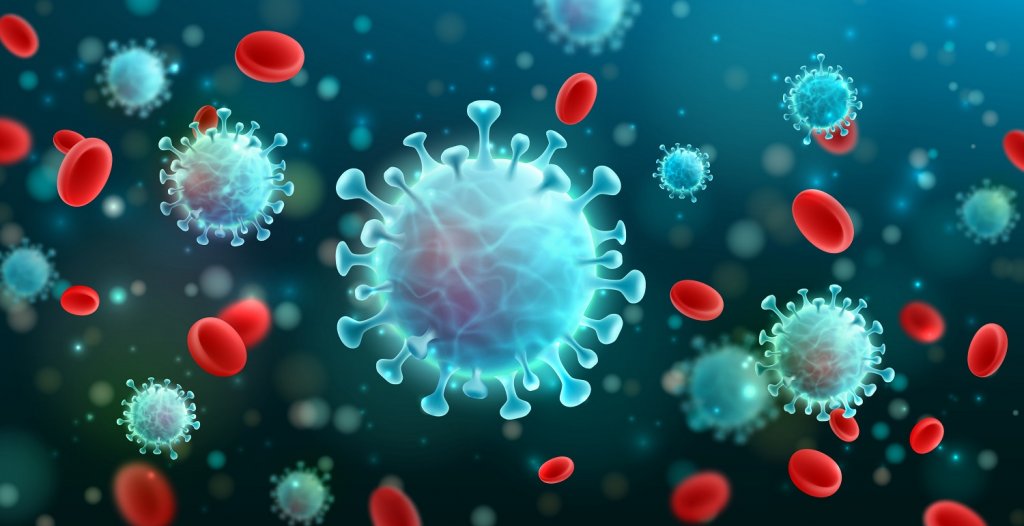
Cognitive Impairment & COVID-19: What We Know So Far


There’s a lot that we still don’t know about COVID 19, especially when it comes to the long-term effects. However, emerging research suggests a troubling new link between the Coronavirus and long-term neurological dysfunction. Many “COVID long-haulers” continue to experience headaches, dizziness, fatigue, and brain fog even weeks after recovering from the Coronavirus. Research also suggests links between the virus and increased risk for strokes, which is concerning for older adults or anyone who already had an increased risk.
If you’ve been feeling lost and dazed since recovering from the Coronavirus, you’re not alone. But don’t despair. In this article, we’ll address the potential neurological effects of COVID-19, along with our best advice for COVID long-haulers.
What is a “COVID long-hauler”?
“COVID long-hauler” is a new term used to describe the growing number of people who continue to experience symptoms of the Coronavirus weeks after recovering. Common complaints among long-haulers include respiratory problems like a persistent cough or shortness of breath. Neurological problems are also common, including headaches, fatigue, loss of taste/smell, and the now-infamous “Covid brain fog”.
Long-haulers are a diverse group, and anyone can become one, young or old. It’s not unusual for someone to report feeling like they’re “in a fog” or “stuck in a daze” even weeks after testing negative for the virus. Some people may be plagued by COVID fatigue or headaches, while still others can’t taste their favorite foods.
You don’t need to have been hospitalized to be a COVID long-hauler, either. Even mild cases can lead to these unpleasant after-effects, which is why you still don’t feel like your old self even after a minor bout with the virus. It’s unclear exactly why some people become COVID long-haulers while others experience no ill effects. But researchers are working hard to gain a greater understanding of the risk factors involved.
How COVID affects the brain
Did you know that when it comes to COVID, losing your sense of smell is actually a neurological problem? It’s true. The Coronavirus can affect the olfactory nerve connecting your nose to your brain, which inhibits your sense of smell. It was one of the earliest signs that COVID could affect the brain. While we still need more research to determine the full extent of COVID’s neurological effects, preliminary studies have revealed a connection between the virus and impaired cognitive performance.
In the study, a group of COVID-19 patients between the ages of 30 and 60 underwent a series of neuropsychological tests to assess various functions of their brains, including memory function, processing speed, and executive function. The COVID-19 patients experienced inhibited cognitive function when compared to a healthy test group, and they especially struggled with sustaining attention on the tests, providing us with evidence that the “COVID brain fog” is a real phenomenon.
Further studies have also provided us with links between COVID and headaches and COVID and strokes, giving us a greater understanding of how the virus can impact the brain.
The inflammation connection
Interestingly, COVID patients also exhibit high levels of inflammation in their blood. That’s not surprising since inflammation is one of the immune system’s natural responses to threats. In low levels, inflammation is a good thing; it’s a sign that your body is addressing the problem as intended. But as with everything in life, balance is key, and excessive inflammation can wreak havoc on your health.
One of the symptoms associated with coronavirus is a “cytokine storm”, an overactive immune response that skyrockets inflammation levels. Cytokine storms have been associated with reduced oxygen in the blood and other respiratory problems caused by COVID-19. They’ve also been linked to neurological problems, like brain fog, fatigue, or the stabbing headaches associated with the virus.

COVID and Strokes
While it’s still unclear exactly why COVID increases the risk of ischemic strokes (blood clots) in some people, inflammation could play a part. Chronic inflammation has long been linked to an increased risk of stroke, which could explain why the aging population is more susceptible.
Picture two highways. One highway is smooth and freshly paved without any potholes or blemishes. It’s easy for traffic to flow through this highway on a consistent basis, and traffic jams are uncommon. On the other hand, the second highway is littered with potholes, cracks, and closed lanes, all of which make it difficult for traffic to flow even on a good day. Now, which highway do you think will fare better when a snowstorm strikes?
The highways in this analogy are your blood vessels, and the flow of traffic is your blood cells. The snowstorm is, of course, COVID-19. Having high levels of inflammation in your body makes it easier for the blood to clot, which can ultimately lead to strokes. This is also why those with pre-existing conditions are hit hard by the virus — because their immune systems are already inflamed from fighting other problems.
How to combat inflammation
Because COVID patients almost always exhibit higher levels of inflammation in their blood, having low inflammation levels in your body can help combat the severity of the virus. Eating a clean diet, exercising regularly, getting plenty of sleep, and avoiding stress keeps inflammation levels low, which can help COVID long-haulers find relief. Avoiding stress is especially key, although that’s often easier said than done.
If you’re feeling stressed because of the pandemic, you’re definitely not alone. If the constant barrage of information from the news and social media is stressing you out, try unplugging for a while. Fire up the iPad for a chat with your grandkids, or head outside for a (socially-distanced) walk in the fresh air. While it’s important to stay informed, it’s also important to take care of your mental health.
Could getting vaccinated help a COVID long-hauler?
What about the Coronavirus vaccine? If you’re a COVID long-hauler plagued by brain fog or headaches, could getting vaccinated provide relief? Unfortunately, probably not. The purpose of the vaccine is to train your body’s immune system to fight against the Coronavirus. It’s meant to be used as a preventative measure. It’s not a cure, and it’s not a way to mitigate the virus’s after-effects. That’s no reason not to get vaccinated, however.
Even if you’ve already contracted the virus, the vaccine can prevent you from getting it a second time, which can minimize your risk of suffering long-term side effects. And if you’ve never contracted the virus before, getting vaccinated can ensure that you never have to deal with long-term side effects in the first place.

When to see a doctor about your long-term Coronavirus symptoms
If you’re struggling with long-term COVID neurological symptoms, you don’t need to suffer alone. Whether you’re being plagued by fatigue, brain fog, dizziness, headaches or loss of taste, any problem that impacts your quality of life is worth bringing up to your doctor.
Although your doctor may not have all the answers yet, they’ll do everything they can to help you cope with your symptoms. There’s also the possibility that your symptoms may not be caused by COVID at all, but by another health condition instead. Never hesitate to seek help when you need it, especially when it comes to your cognitive well-being.
The bottom line
While we still need more research to determine the full extent of the Coronavirus — especially when it comes to long-term symptoms — anyone of any age can minimize the damage caused by COVID simply by practicing healthy lifestyle habits and keeping your inflammation levels low. Taking care of your body inside and out is crucial not just for fighting COVID, but for any health condition you may encounter.
You can also minimize your chances of contracting the virus by continuing to follow the CDC guidelines of mask-wearing, social distancing, and getting vaccinated when you can. Above all else, staying calm and optimistic is one of the most important things you can do in the face of the pandemic. So do your best to stay positive.
Aviv Medical Program provides you with a unique opportunity to invest in your health while you age

